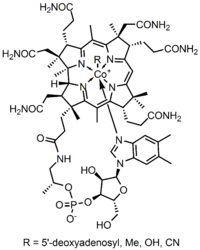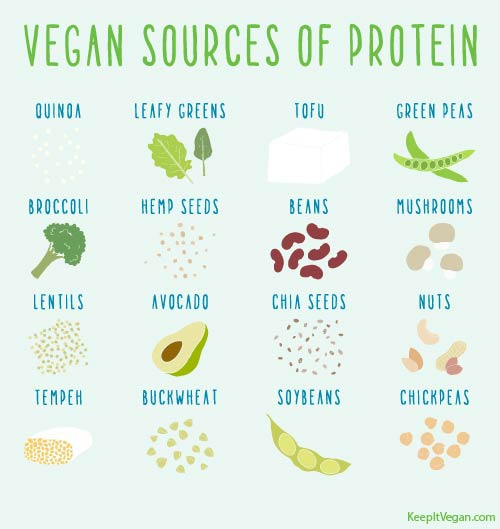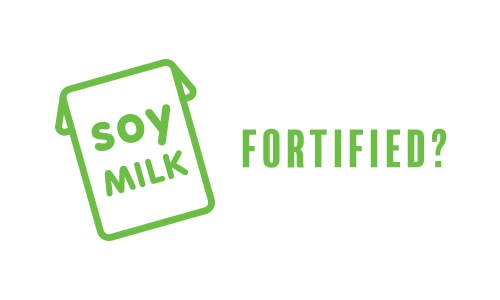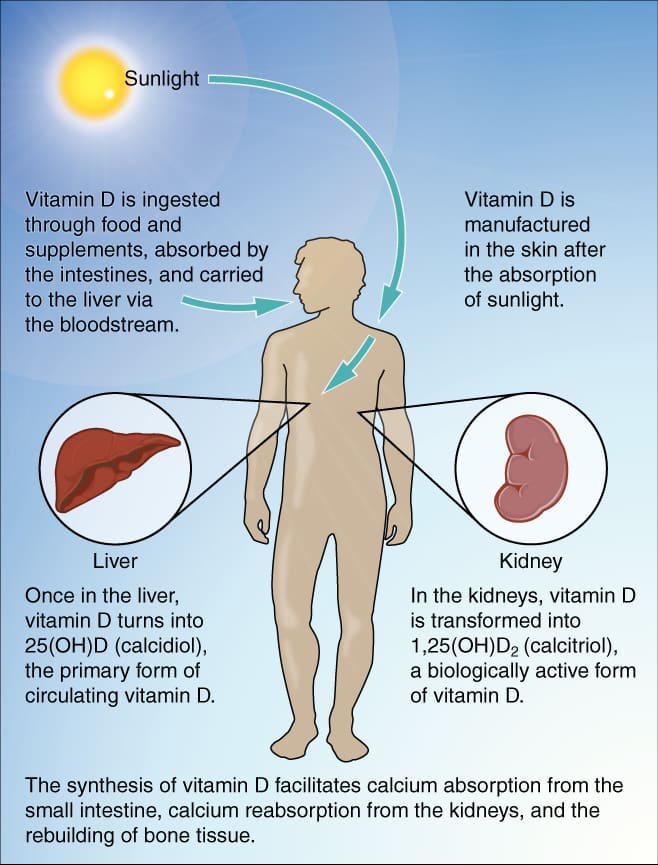Your Complete Guide To Vegan Supplements
Veganism can be great for your health, with the overall reduced risk of most cancers, heart disease and diabetes.
This information is becoming more and more widespread, and people, who never thought they’d call themselves a vegan in a million years, are trying out a plant-based diet.
With all of the benefits that come with a healthful vegan diet, it is still possible to live a vegan lifestyle that neglects your health.
For example, you could go home and eat the amazing So Delicious Cashew Ice cream for every meal, and you would probably not end up with the most balanced of nutrients in your diet.
While there is a lot of confusion out there about nutrition in general, and for vegans in particular, with this handy guide, I hope you’ll find great ways to manage your whole-health, mostly with whole plant foods, and maybe sometimes with a vitamin supplement here and there.
Video by Mic. the Vegan, answering the question, “Should vegans take B12 supplements?”
The one supplement all vegans should take
Make sure to check out our complete guide on vitamin B/B12.
The hardest nutrient for a vegan to get through diet alone is B12. However, it is not much of a different situation for omnivores either!
B12 is more of a modern world problem than anything. We used to be able to get the B12 we need simply from unfiltered water sources, such as traditional wells, rivers, etc. You see, since animals (including us) don’t produce B12 naturally, we need to get it from other sources. These days, most people, vegan or otherwise, get their B12 from fortified foods, including animal products, where livestock are intentionally fed (or injected with) B12 supplements.
What is B12?
B12 is the pesky B-vitamin not found in the B-Complex. B12 is essentially food for your blood cells and nerves, and without it, or enough of it, your blood cells can’t mature, which means they can’t feed the rest of your body properly, or carry oxygen around. B12 also plays a crucial role in producing DNA, which, as I’m sure you know, is kind of important.

The chemical structure of B12
Where do non-vegans get B12?
Omnivore diets include dairy and meat, which does give them some B12. However, most omnivores don’t eat organ meats, like the liver, these days, which is where the largest amounts of B12 accumulate. So, while these animal products do have some accumulation of B12 in the fatty tissue, the absorption rate when ingested by humans is low.
Interestingly, B12 levels in those animal products are so low, that animal by-products couldn’t even be used for commercial production of B12 supplements! Instead B12 supplements for human and non-human animals, are cultivated by fermenting common sugars, like cane sugar and molasses, and gathered for supplement production. Meaning, B12 supplements are typically vegan, and if our friend the cow can get a cow sized amount of B12 from fermented sugars, so can we!
The concentrations of B12 that exist in animals (like humans!) get stored in fat, which means that we accumulate it, and hold onto it until we need it, or we burn fat. Animals don’t produce B12, they bio-accumulate it—which should raise interesting issues about what ELSE they bio-accumulate, because it is a lot! For example, this study shows dangerous levels of pesticide accumulation in grass-fed cattle.
What did we do before supplements, you ask? Good question. An estimated 2-4% of the US population is B12 deficient, regardless of their veganism, and this low number probably reflects fortified food intake. Without those foods, the numbers would be much higher.
Back in the day, however, before fortified foods and other things, water and soil had plenty of the bacteria (healthy, fermenting, bacteria) that produced B12 naturally. A variety of ways that we live require different approaches to our water and soil, some are good, and some are bad. For example, pesticides reduce these bacteria in the soil and ground water, which cause us to need to treat our water, effectively removing the remaining bacteria.
However, if it weren’t for pesticides, it would still be a great idea to treat our water since many major fatal diseases continue to be spread throughout the world from untreated water. Sanitation methods, like treating our water, and washing the soil off of our produce, is a trade-off: unsanitized and you can maybe get an unpredictable amount of B12, or you can stick to drinking treated water and avoid things like dysentery…I’m sticking with NO dysentery, thanks!
Additionally, some food trends reduce the exposure we have to B12 rich foods, especially in western diets. Fermented foods, not the vinegary pickles you may find on a sandwich, but rather things like sauerkraut, kimchi, kombucha, and tempeh, all have decent amounts of B12.
In addition to B12, these also help healthy bacteria find its way into your gut, what they call the gut micro-biome, which not only helps digestion comfort (that means being regular) but also increases the absorption rate of most vitamins from your food, and even from supplements.
If you just can’t stomach fermented foods, or you want to shake it up from time to time and still get your B12, nutritional yeast, dried shitake mushrooms, lion’s mane mushrooms, and seaweed (like dried seaweed sheets used for sushi rolls), are all sources of B12 too.
B12 deficiency: Something you DON’T want
Vitamin B12 deficiency causes fatigue, a feeling of pervasive weakness, constipation, loss of appetite, weight loss, and a really intense form of anemia called megaloblastic anemia. Nerve problems, such as numbness and tingling in the hands and feet can also be associated with B12 deficiency.
Other symptoms of vitamin B12 deficiency include problems with balance, depression, confusion, dementia. Vitamin B12 deficiency can damage the nervous system, which nobody wants, and that means it is especially important in children and infants who are still developing. I think we can all agree that those are things we all want to avoid.

Where do vegans get their protein from? Well, I hope this graphic answers that!
Do vegans need a protein supplement?
Where do vegans get their protein—a question as old as omnivore time. In one word: plants! Humans get their protein just like most other land mammals, in fact. Plant foods are an excellent source of protein, some have higher amounts, and some have different kinds of protein within them, but luckily, adequate protein needn’t ever be an issue for vegans.
The largest obstacle facing vegan protein intake (itself, a rather small obstacle) is getting the balance of all the 20 different amino acids needed to form what is known as “complete protein”.
Sometimes these complete proteins can be found in one plant food on its own, like quinoa, and other times the complete protein is formed through common combinations, some you may already be familiar with like red beans and rice or a peanut butter and jelly sandwich. While plant foods tend to be lower, overall, in protein than many animal products, there are several plant foods that are much better for you, are not processed, and still manage to pack a punch in the protein department.
Foods with high complete proteins include pistachios, soybeans (especially tempeh), quinoa (try all the colors), black beans, chickpeas, kidney beans, lentils, peanuts, and buckwheat and chia seeds. Other nuts and seeds like cashews, sunflowers seeds, and hemp seeds, have almost all of what you need, and just by tossing a few extra in can serve to complete off other proteins you are likely already eating.
A diet that has enough calories (for this I mean a diet with at least 1000+ calories a day) from whole plant sources (sorry cashew ice cream), is highly likely to have more than enough protein for the average, non-athlete. Vegan athletes, of which there are several notable ones (ahem, Venus and Serena Williams, ahem) may want to consider adding tofu, beans, or vegan protein powders made from soy milk, peanuts or other plant sources, to encourage muscle recovery and muscle density for peak performance.
Please note, diets high in protein, regardless of their sources, are linked to digestive and liver cancers, as well as reduced absorption of many essential vitamins and minerals. And, as always, consult a doctor when considering any physical training regimen, including protein packing for athletic demands!

Are fortified foods enough to replace supplements?
Yes, and no. The truth is, without fortified foods many of us would vitamin deficient, and we have been letting the packaged foods aisle make our nutrition decisions for us most of our lives. Most breakfast cereals, plant and dairy milk, breads and pastas, and many other common food products, are fortified with everything from extra fiber to vitamin A-D and B12, and more.
We all know relying on packaged foods isn’t a great idea for health, vitamin fortification notwithstanding, but bear in mind that absorption from non-food sources is harder. Meaning straight from the whole plant is best, next comes fortified foods, and after that straight up vitamin supplements.
The USDA recommends that every person supplement their diet with a multivitamin to ensure being be able to hit optimal levels of certain nutrients, like Calcium, Vitamin D, and B12.
However, if you are trying to avoid or transition off of supplementing, then consider keeping a daily log of your food, and do a weekly total to see if you are ingesting enough of these nutrients. After a while, you will know if you are getting a good balance, where you need to increase, and then eating a balanced diet will become routine. There are many diet logging apps (like Livestrong and Sparkpeople) that can monitor your vitamin levels for you, too.
Of course, the only real test of vitamin levels is doing a blood test at 3 month, or 6 month, intervals.
Supplements to consider taking:
As with all supplements, the efficacy and content of vitamin supplements is up for debate. However, there are some nutrients that are very difficult to keep at optimal levels through diet alone, especially if you aren’t able to prepare all of your own meals, a problem almost everyone has!
Prominent plant-based doctor, Dr. Joel Fuhrman, has observed that certain essential micronutrients, like the Omega fatty acids, iodine, and zinc, are often lost in the diet shuffle, with most people focusing on fat, carbs and protein, and the better known micronutrients vitamin c, d, and b12. However, Dr. Furhman, stresses that choosing animal sources for these nutrients is choosing to increase heart disease and cancer, which is not an advisable trade-off. So, play it safe and take a supplement when in doubt, or when advised by a physician.

Connexions’ graphic explaining the synthesis of vitamin d
Vitamin D
Without Vitamin D we are not able to absorb calcium, which is kind of important if you like having bones, teeth, and being able to do stuff. Vitamin D also helps regulate the immune system, and keep inflammation under control, without which you’ll be constantly sick, in pain, or both.
Diseases like rickets, and other malformed bone diseases, are associated with Vitamin D deficiency, but they were mostly eradicated when dairy milk was fortified, in the early part of the last century. Luckily, this is something almost all plant milks do now, too. In other words, it’s not the dairy, but what they add into the dairy, that help you get your vitamins.
There are a few different Vitamin Ds; usually, you see vitamin D2, also called ergocalciferol, and vitamin D3, also called cholecalciferol. D2 is almost always available vegan, and D3 is usually vegetarian. However, most medical data suggests that dosages, tolerances and absorption of each are the same, so stick with the vegan D2.
Can we get Vitamin D without pills? Absolutely. Step one: don’t be a vegan vampire (as cute as it is to let beet juice drip down your face and pretend). So, unless it’s Halloween, go and get some sun! Medical studies have found that a mere 30 minutes of sun hitting your skin between 10 AM and 3 PM twice a week, without sunscreen, can produce a good amount of Vitamin D (that’s right, WE can actually make this one!)
There are also some commercial tanning beds that can help with this, but I don’t really encourage that sort of thing, unless sun exposure is truly hard to come by where/how you live.
Some research has also suggested that chest and stomach exposure is the more likely to promote Vitamin D synthesis, so sometimes when you walk the dog or go out to grab groceries show off your tummy a bit and you could boost your Vitamin D numbers even higher.
There are also food sources for getting Vitamin D. Vitamin D is highest in fish and in the liver of land mammals because the body stores this long-term in the liver and body fat. What this means is that when you do accumulate Vitamin D, you’ll hang onto it, unlike vitamin C where the extra goes right through you when you pee. Apparently, there are mushrooms with good concentrations of D2, ergocalciferol, and they even grow some with extended UV exposure to enhance this, which is available in powder form as well.
Vitamin D supplements are recommended for some people, and some medical conditions. According to the National Institutes of Health:
-
Individuals with limited sun exposure need to ensure vitamin D in their diet or take a supplement.
-
Breastfeeding infants, and their moms, should consider talking to their doctors about whether they are getting enough Vitamin D, and whether to add a supplement.
-
People with digestive issues, or that are likely to have nutrient absorption issues from certain conditions like stomach and intestinal cancer.
-
People with darker skin have a harder time absorbing Vitamin D from the sun.
-
People who are obese, have compromised kidneys or livers, or have had weight loss surgery, may also be in low absorption categories.
Iodine
Iodine is something most of us are probably familiar with either as part of an old school first-aid kit, or from the “iodized” label on a package of salt. Iodine plays a big role in regulating the function of the thyroid gland, an essential hormone factory, which regulates metabolism, bone formation, brain development, weight management, emotions, mood, and even sleep regulation.
Iodine can be found in a number of food sources. That adorable little Morton’s girl on your salt container is pouring out iodized salt on the sidewalk, for example. Table salt contains plenty of iodine, but it was fortified. Himalayan Pink salt, on the other hand has iodine naturally in its delicious salty goodness.
Other good sources of iodine include: sea vegetables (they come up a lot, its probably time to stock up), baked potatoes, dried prunes, navy beans, bananas, strawberries, cranberries, pineapple, rhubarb, and watercress. Not too bad, huh?
Something to keep in mind when aiming for iodine in your diet is that foods like soy, and cruciferous vegetables like broccoli and cauliflower, may block the absorption of iodine. This hasn’t been shown to be a cause for concern, however, as studies on modern diets show that iodine is present in so many items from fertilizer on crops, to table salt, and processed foods like bread, making iodine deficiency extremely rare in the industrialized world.
As with all things, diversity in your diet will ensure that all the good things from soy and broccoli reach you sometimes, and the iodine reaches you at other times.
Supplementing with iodine is very rarely needed. You should plan to supplement with iodine when directed by a doctor, because iodine deficiency is uncommon and usually the sign of a thyroid dysfunction or other medical condition.
Calcium
Calcium is a fundamental building block of our bodies. Calcium makes healthy bones, and we need Calcium to make our muscles and nerves function, to regulate how blood, hormones, and important enzymes move through the body (and communicate to each other).
Also, Calcium and Vitamin D are in a co-dependent relationship with each other, and as such, aren’t much good without the other present. Go figure.
Calcium is readily available in foods such as kale, broccoli, Chinese cabbage, and grains. It is also commonly fortified in many foods, from bread and pasta, to tofu and plant milk. Coincidentally, in many of the same foods that Vitamin D is fortified, pretty convenient!
Calcium supplements are somewhat controversial. Taking mineral supplements in general are heavily debated, and some data suggests that you can not adequately absorb Calcium from vitamin pills, especially because with things like Calcium the more you take at one time the harder it is for your body to absorb any at all, which could seriously backfire.
Interestingly, there are medical studies that show that dairy reduces the overall Calcium in the body, the same thing happens from diets that are too high in protein and salt. It causes something called acidosis, which triggers the body into releasing Calcium from its own Calcium stores (we typically call these stores bones and teeth). This acidosis can also occur when taking supplements, so best to only do so as prescribed by your doctor.
Iron
Iron is another basic building block of our bodies. Iron helps to form blood, specifically the protein in our blood, and it moves oxygen around the body most importantly to the brain. Iron also helps to form connective tissues like cartilage and ligament.
Iron is in a lot of foods, but there are two different kinds of iron that we encounter: Heme Iron and Non-Heme iron. Heme iron, gets absorbed by our bodies more efficiently, but is also highly associated with cancer, stroke, heart disease, and things like diabetes. Animal products contain both types of Iron, but plants contain predominantly non-Heme iron.
While non-Heme iron may have less bang for the Iron buck, plant sources still provide plenty of Iron, especially from foods like:
White beans, lentils, spinach, kidney beans, and peas. Hummus, chickpeas, lentils, Edamame, black beans, mushrooms, spinach, broccoli, kale, and garlic, pumpkin seeds or pine nuts, cashews, pecans, peanuts, steel cut oats, brown rice, quinoa, nuts, dried fruits like raisins, and dark chocolate.
To make sure you absorb the iron in your diet efficiently, make sure to eat enough vitamin c, which usually isn’t so hard if you regularly eat things like citrus, peppers, and tomatoes.
You should only take Iron when specifically prescribed by a doctor. Iron is very dangerous to supplement and can be toxic if taken for too long, and Iron levels need to be regularly monitored by a doctor.
Omega 3 and DHA
Fatty Acids, specifically Omega 3s and Omega 6s, play an important role in our health. Omega 3s, also referred to as DHA, are particularly important to our health, but it’s striking the right ratio of 3s to 6s that we need to aim for in our diet.
Research shows that Omega 3s can radically reduce inflammation in the body, which means it can help the entire body’s healing process, something that is especially important for inflammatory conditions like arthritis and auto-immune diseases. Omega 3s are also important for preventing and treating chronic diseases like heart disease, and cancer. Omega-3s like to camp out in your brain, and are linked with memory, mental acuity, and mood.
Keeping a regular amount of the Omegas pumping through your system means balancing high cholesterol, blood pressure, and insulin resistance, too.
The good news is that Omega 3s are incredibly easy, and delicious, to include in your diet. Unsurprisingly, there are some great overlaps with foods already mentioned, so that should make a well-rounded diet easy-er. Things like flax, chia, and hemp get the most attention for being high in Omegas. In fact, for those, often just a teaspoon a day will do the trick. Suddenly all those smoothie recipes make great sense, right?
Similarly, the oil from flaxseed (also known as linseed oil), as well as soybean and canola oils, are a good source of Omega 3s.
Additionally, walnuts, soybeans (and soy foods like tofu), kidney beans, black beans, and winter squash also have a solid amount of Omega 3s in normal serving sizesd.
Omegas are very important, but because they can be readily obtained in your diet, you only need to take Omega 3s when directed by doctor. Besides, you’ll absorb them better from ground up flax anyway ☺
Zinc
Zinc is a heavy hitter when it comes to fighting viruses, and maintaining immune health. This is because Zinc plays a crucial role in making the DNA and protein in our bodies, which means that Zinc is a champion healer.
There aren’t a ton of different sources for Zinc, but you are probably eating them already! Beans, nuts, and whole grains are your best bet for Zinc, much like many of the nutrients listed above, so stock up.
Zinc is another nutrient you want to be careful taking supplements for. Zinc is safely supplemented for very short periods of time, for example while you have the flu, which explains why things like cold medicine and cough drops frequently advertise zinc added into their mixes. Some multivitamins contain small amount of zinc, which is probably ok, but I’m not a doctor, so ask yours first!
Final Notes
Overall, vitamin deficiency is not a vegan issue, with almost half of the population taking daily supplement regardless of the animal products in their diet. Supplements are a good safety-net for overall nutrition, but should be viewed with a bit of skepticism since the FDA does not verify most of them, and when they do test them, many supplements get marked as dangerous, fraudulent, or as having wildly different ingredients than advertised.
High quality vegan multi-vitamins do exist, so research to find the ones that you can trust. If you aren’t the type to balance and log your diet down to the last micro-nutrient, supplements are an excellent addition to a healthful diet and vegan lifestyle.
When evaluating your diet, getting the widest range of fruits and vegetables will help ensure that you can properly absorb the nutrients you eat and/or take by supplement. And, as common sense would have it, we absorb nutrients straight from unprocessed food sources as much as 10 or 20 times better than in pill form. So make that salad a double next time!
Bonus!
As a bonus, check out the video above explaining whether or not we should take a multivitamin or not. Consider reading this article to go along with it as well.
Below is a list of every health happy food mentioned in this article. Basically, if you just take this list shopping with you at thegrocery store, and eat some of them in one meal and some in other meals, you’ll be happy and well-fed.
|
|
|
|
|---|
Leave a Comment